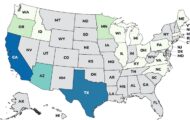A study by the German Federal Institute for Risk Assessment (BfR) found that the criteria for Listeria monocytogenes bacteria in ready-to-eat (RTE) foods are not always met, leading to an increased risk for vulnerable populations. The very young, the elderly, pregnant women, and those with compromised immune systems can become seriously ill with listeriosis. The study said that foods that can be contaminated with this pathogenic bacteria include smoked or gravad (cured) fish and soft and semi-soft cheeses made from raw milk. BfR investigated the presence of Listeria monocytogenes in smoked and gravad fish, soft and semi-soft cheeses and heat-treated meat products. They evaluated and assessed 2,540 study results on the bacteria from January 1, 2010 to December 31, 2011 and discovered the … [Read more...]
German Study Finds Criteria for Listeria in RTE Foods Not Always Met
New Study Shows Packaging Can Inhibit Listeria in Ready-to-Eat Products

A new study conducted by the Department of Food Science and Technology at the University of Georgia has found that antimicrobial packaging can make food safer. Scientists looked at the effectiveness of antimicrobial packaging structures in ready-to-eat (RTE) meat products. They inoculated cooked ham with Listeria monocytogenes, then packaged it in antimicrobial packaging. The samples were stored at 4 degrees, 10 degrees, and 22 degrees Centigrade, then tested for aerobic bacteria (bacteria that need oxygen to live and reproduce), Entereobacteriaceae, and Listeria monocytogenes two times over four weeks. They found that packaging with an oxygen scavenger or a carbon dioxide generator was effective at reducing bacterial growth, and that packaging with an allyl isothiocyanate (AIT) … [Read more...]





